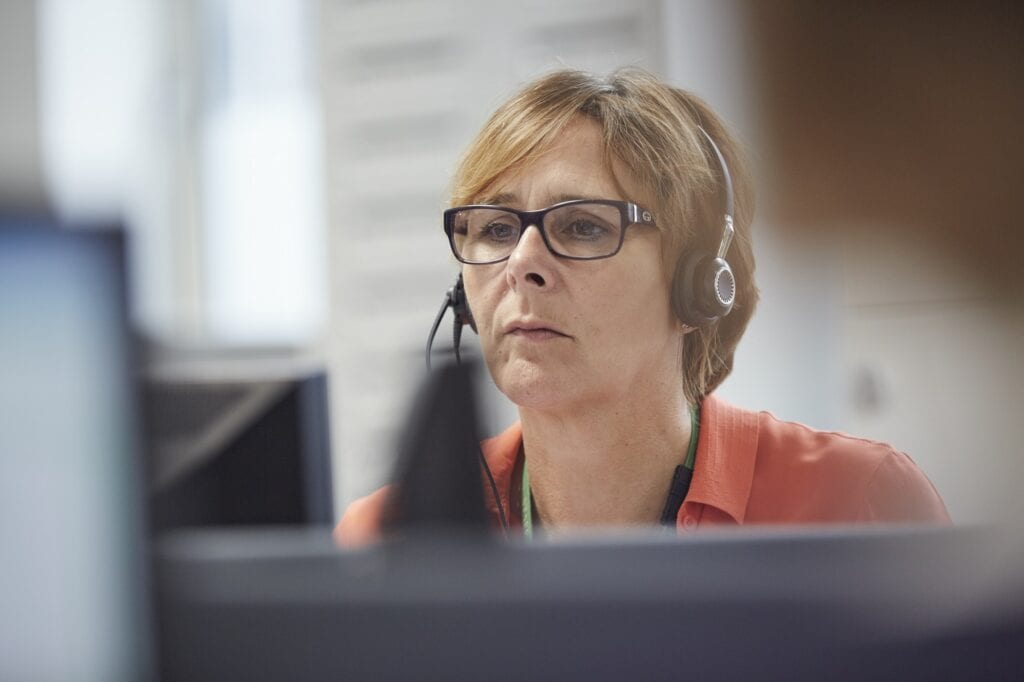
- Monthly average number of referrals from NSPCC helpline about parental substance misuse to agencies in Wales 72% higher since April 2020
- An average of 38 contacts a day to the helpline from people across the UK worried about parents’ misuse of drugs and alcohol, since April
- NSPCC Cymru/Wales stresses local substance misuse services must be kept available throughout the pandemic
- Charity urges anyone with concerns about a child due to a parent’s drug or alcohol intake to contact NSPCC helpline for support on 0808 800 5000
The number of referrals about parental substance misuse made by the NSPCC helpline to agencies across Wales has increased by more than 70% since the start of the pandemic. Referrals are made to external agencies such as the police and children’s services when concerns reported to the helpline are considered to be serious enough to warrant further investigation.
New data by the children’s charity reveals it made 572 referrals about this issue in the last 10 months to agencies in Wales – a monthly average of 58 referrals, which is 72% higher than pre-lockdown last year (6 January – 22 March 2020).

UK-wide, 11,784 contacts have been made to the NSPCC helpline about parents’ use of drugs and alcohol since April – the equivalent of more than 38 a day. The average monthly number of contacts has increased by 66% since April¹.
It comes as this week marks Children of Alcoholics Week to raise awareness of children affected by parental alcohol problems.
Parental substance misuse is the misuse of drugs and/or alcohol by a parent or carer. This includes adults who consume harmful amounts of alcohol, are dependent on alcohol, use prescription drugs excessively or are using illegal drugs, any of which impacts their ability to care for a child.
Living in a household where a parent or carer misuses substances does not necessarily mean a child will experience abuse, but it can make it more difficult for parents to provide safe and consistent care and this can lead to abuse or neglect. It can also have a serious impact on children’s emotional well-being.
Schools have stayed open for vulnerable children and those of key workers, but many others are learning from home via virtual lessons, which means there is no escape for some children living with parental substance misuse.
One adult from Wales who contacted the helpline told of their welfare concerns for the children of a friend.
“I’m concerned about the safety of four children belonging to a friend of mine who is not in a good way mentally. She’s got major anger issues and has a history of self-harm and alcoholism. Just the other day, I got a late-night call from the eldest son asking me for help – he said his mother was having a ‘down day’ and was threatening to cut herself. When I got there, the mother was slumped on the kitchen floor, shouting and bawling about not seeing her partner, that nobody loved her and she wanted to die. This was all in front of the children who were all visibly distressed. The kids are now staying at mine while their mother settles down. I hate to say it, but I’m worried she can’t look after herself, let alone her kids”.
As contacts to the helpline continue to rise, it is vital that the Welsh Government, health boards and local authorities keep local substance misuse services available throughout the pandemic.

NSPCC Cymru Wales is calling on the Welsh Government to deliver a national Covid recovery action plan for babies, children and young people, that focuses on their wellbeing, mental health and educational needs. It warns it will be crucial to identify children who have experienced trauma during lockdown and ensure support services are available to provide therapeutic interventions required.
Ashley*, now 25, grew up in Denbighshire says she felt ‘trapped’ in her own home growing up because her mum was addicted to alcohol.
“My mum used to drink every day as far back as I can remember. Her drinking meant that I had to be the mum to my siblings and I didn’t really have a life. I was responsible for making sure my siblings all got fed, were dressed and bathed and in school. I cooked and cleaned around the house too. My only escape from this was school.
“I didn’t feel like I was a child, I felt like I was growing up too quickly. I didn’t speak to anyone about what was going on at home because I didn’t realise it was wrong. That was just my life and I thought it was normal.
“My heart breaks for the children out there that are currently going through this and have no outlet, stuck at home surrounded by alcohol abuse with no escape. If I didn’t have that time away from home while at school, and support from the NSPCC, I honestly don’t think I would be here today.”
Some of the signs to look out for that show families might be struggling with parental substance misuse during the lockdown and need support include:
- parents may be visually under the influence of alcohol or drugs over video chat or in public
- a change in the parent’s behaviour as they may have difficulty controlling their emotions or act irrationally or unpredictably
- a child may become withdrawn or develop behavioural, emotional or mental problems
- aggressive or repeated shouting at home
- children may have taken on the responsibility of caring for their parents or siblings
- children looking dirty or not changing their clothes
Kam Thandi, Head of NSPCC Helpline explained: “Parental substance misuse can have a seriously detrimental impact on the whole family. The COVID-19 pandemic and subsequent lockdowns have created a perfect storm for families affected by this problem.
“At the NSPCC helpline we’ve not only seen a rise in contacts and referrals but we’re also seeing families who weren’t previously known to children’s services requiring help and support for substance misuse.
“The pressures on families at the moment are unprecedented and it is no surprise that our helpline is hearing that parents and carers are struggling with substance misuse. To keep our children safe it’s vital that those who are relying on drugs and alcohol, to the extent that the care of their children is being compromised, must seek help.”
The NSPCC’s concerns are being backed by Adfam, a charity which provides support to families across Wales and England affected by drug, alcohol or gambling addiction.
Vivienne Evans OBE, Chief Executive, Adfam, said: “We are seeing that the usual daily challenges associated with a parent or family member’s alcohol or drug problem – fear, domestic abuse, isolation, loneliness, and mental stress – are being exacerbated by the lockdown measures.
“A staggering 88% of the families that we surveyed in our ‘Families in Lockdown’ survey told us that the first lockdown negatively impacted on their family member’s alcohol, drug or gambling problem. A third of families experienced an increase in verbal abuse from their family member and 13% feel more concerned than usual for their safety.
“As drug and alcohol misuse is so stigmatised, we know that many young people are scared to seek support, and for many children affected by parental substance use, the lockdown impedes them from the safety of the school environment. We know that with the right kind of support, children and young people can navigate this challenging time. We urge families not to wait until breaking point.”
The NSPCC is calling on anyone who is concerned a child is at risk due to parental substance misuse to contact their helpline. Trained professionals can offer advice to make sure everyone in the family receives the support they need – both parents and children.
If anyone is concerned about their own drug or alcohol intake and that it is affecting their family, support can be accessed by contacting the NSPCC helpline on 0808 800 5000 or visiting www.Adfam.org.uk to find their nearest online support group.
Children can contact Childline every day of the week on 0800 11 11 or via childline.org.uk.

| [donate]
| Help keep news FREE for our readersSupporting your local community newspaper/online news outlet is crucial now more than ever. If you believe in independent journalism,then consider making a valuable contribution by making a one-time or monthly donation. We operate in rural areas where providing unbiased news can be challenging. |



















